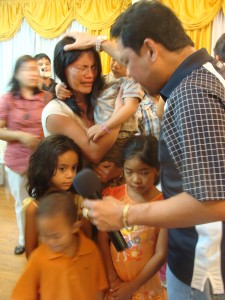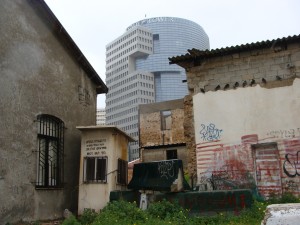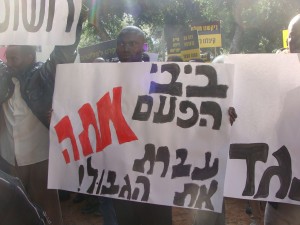 Tablet, March 11, 2011
Tablet, March 11, 2011
On a Friday night, Filipino congregants are praying in a tiny, unmarked church tucked off a nameless alley in south Tel Aviv. The church is one room, with wood laminate floors and plastic chairs. Burgundy banners read “Elohim” and “Yahweh” in Roman letters. A Star of David made of spoons hangs in the window that looks out over the Neve Sha’anan neighborhood, four floors below.
The congregants are evangelical Christians—a group that is sometimes referred to in the Philippines as “charismatics”—and their love for both the Bible and the Jewish people inspires them to use bits of Judaism in their services. About a year and a half ago, the church was raided by Israeli immigration authorities. Standing here, I try to imagine police swarming the place. But the service is so peaceful, the praying so earnest, that I can’t imagine anything but this.
The pastora of the church, who asked that her name not be used, to protect the privacy of her congregants, stands at the clear acrylic pulpit, which also holds a menorah and kiddush cup. A guitarist, keyboardist, drummer, and an Israeli flag are behind her. Her eyes are closed, her face tipped up. She pushes her hands to her heart as she leads the group in song: “We worship you,” the congregation sings. Then the music slows, softens, and stops. Someone blows a shofar. The congregants cry out to God in Hebrew.


